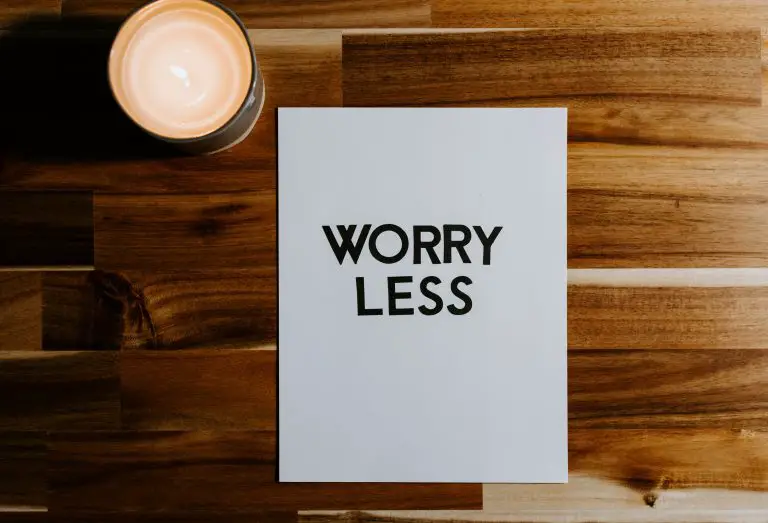What to do with multiple pensions? Combine or Keep separate? (What you need to know)
Do you have multiple pensions? If so, you’re not alone.
So what to do with multiple pensions?
Consolidate them into a single account, or keep them separate?
It can be confusing to know what to do with this situation, but you needn’t worry-here are some tips on what to do with your multiple pensions. Here are some factors to consider when making your decision.

What is a pension?
A pension is savings for your future self. You will live off it when you can’t or don’t want to work for money anymore. Pretty important as without it you will be poor in your old age.
When you retire – whatever that’s means to you, a pension is a regular payment made to you when you are not working.
Given that most of us are working several jobs over a career, you have probably started collecting pension pots here and there.
This can be confusing, but there are some things you can do to make the most of your pensions. One thing you can do is consolidate your pensions into one account.
This will make it easier to keep track of your money and simplify it withdrawing money from your pensions.
If you are at retirement age, you can also choose to receive your pensions as a lump sum or as monthly payments.
How do I determine how much each pension is worth and what to do with them?
The first thing to do is track down your old pensions and determine the value of each pension.
Get all your relevant data together, national insurance number, passport number account details, old company addresses and possibly your old house addresses.
You will likely need these documents to help track dnw any pensions.
You can use the pension tracing service to track down old pensions in the UK. You can start by contacting your pension provider or where you used to work and get the latest valuation from them. A few of the things that you want to find out in this process are
- What are the pensions worth?
- What are they invested in?
- Are they invested in a way that aligns with your values and goals?
- Are there any penalties for moving them?
- Will you lose any benefits if you make changes?
Answers to the above questions will help decide if it’s worth combining or actually more costly to do so.

To consolidate or not to consolidate pension pots
After you have your old pensions tracked down and the latest values on each, it is time to decide whether they should be consolidated.
Pensions can be managed in two ways.
The first way is to combine all of your pensions, which means any money you put in goes towards one pension.
The second option is to keep all your pensions in several pots.
The advantages of consolidating your pensions are that it gives you more control over where the money goes and what the money is invested in. A combined pension pot can also be cheaper to run as you just pay one fee on a big fund rather than across several small pots. It also makes it easier for you to withdraw money at retirement because all of your funds are in one place.
The disadvantages might be that if any of the pensions have specific benefits, you might lose or incur penalties for making changes. Before making changes, you may need to be careful about losing any lucrative benefits and/or incurring withdrawal fees. Always ask about the benefits or penalties and see if they outweigh the administrative advantages of consolidating.
Which method should I choose?
Option 1: Consolidate your pensions. This gives you more control over where the money goes and how it is invested. It also makes withdrawing easier because all of your pensions are in one place
Option 2: Each pension remains individual, But you contribute to one or more of them or at least your latest one. This method ensures that each pension gets equal treatment, but doing so may mean that some won’t be worth much when you retire.
There is no set way to decide
- Less administration VS any loss of benefits or fees incurred.
You will need to figure this out for your case.
What if I think they should remain separate?
If you choose not to combine the pensions, keeping your paperwork up to date is crucial.
You will need to keep your and your pension providers details about you up to date. Make sure you inform them of any changes in your circumstances, like a change of address or a divorce.
You want to make sure they can find you and carry out your last wishes with accurate information. Regularly review your pensions to ensure they are heading in the right direction and invested in a way that fits with your values and goals.
So, before you decide whether or not to consolidate your pensions, it’s important to weigh up the pros and cons and assess whether or not it’s the right thing for you.
| Option | Pros | Cons |
|---|---|---|
| Keep Pensions Separate | Retain unique benefits of each plan, different investment strategies, and potentially different retirement ages. | More complex to manage, higher risk of losing track, potentially higher cumulative fees. |
| Consolidate Pensions | Simplified management, potentially lower fees, easier to track, and consistent investment strategy. | Risk of losing specific benefits, possible transfer charges, and less diversification. |
FAQ: What to do with multiple pension pots?
What is the best way to manage multiple pensions?
The best way to manage multiple pensions often involves combining your pensions into one pot. This can simplify managing your funds, give you a clearer view of your retirement savings, and potentially reduce fees. Just be sure to consider any transfer charges or loss of benefits before making a move. 💰
Is it worth putting all my pensions together?
Whether pension consolidation is worth it depends on your individual circumstances. Consolidating your pensions can simplify management and potentially reduce fees. However, you need to weigh factors like transfer costs, loss of any specific benefits, and the investment options available in each scheme. Always consider seeking financial advice to understand the implications for your specific situation. 💰
What happens if you have more than one pension?
Having more than one pension is pretty common, especially if you’ve changed jobs a few times.
Essentially, each pension pot grows according to its own investment strategy and fee structure. The main thing is keeping track of them all – you don’t want to lose sight of any! You’ll have multiple statements, different access points, and possibly varying retirement ages for each. It’s like having several small treasure chests, each growing at its own pace.
The challenge is managing them effectively, ensuring they align with your retirement goals. Sometimes, people consolidate them for simplicity, but it’s a decision that needs careful consideration. 💰
Can you retire with multiple pensions?
Absolutely, you can retire with multiple pensions. Having several pensions can actually provide a more diversified income stream during retirement. The key is to manage them effectively to align with your retirement goals. 💰
Conclusion: What to do with multiple pensions?
If you’re feeling overwhelmed by your pensions, don’t worry; you can do a few things to simplify the process.
Firstly, you could consolidate them! This involves tracking them down, assessing the advantages and disadvantages of merging them, collecting the paperwork and submitting it. It may seem like a lot of work, but it can be worth implying your pension admin headaches.
Secondly, you could leave them where they are if everything seems ok, and you can maintain a track on them. You might want to talk to an adviser if you have a complicated or large pension. They can help you figure out what to do with your pensions and whether or not consolidation is the right choice for you.
Finally, remember that there’s no one-size-fits-all answer regarding pensions. You need to make the best decision for yourself and your situation. Working with a financial planner or coach can help you decide what’s best for you and your plans.
To find out more about getting help with your financial life planning, click the link below. Feeling like its time for a big life change? Find out how we can help you here
Need a helping hand with your money
If you’ve made it this far, congratulations! You’re already taking steps towards a healthier financial future. But maybe you’re feeling a bit overwhelmed. Maybe the of budgeting, saving, and investing still makes you break out in a cold sweat. Don’t worry, you’re not alone, and help is available.
At Financially Happy Money Coaching, I understand money isn’t just about numbers. It’s about emotions, behaviours, and life choices. That’s why we’re here to help you take the stress out of money and build wealth that aligns with your values and lifestyle.
Whether you’re just starting out on your financial journey or you’re looking to take your finances to the next level, we’re here to guide you every step of the way. I’ll help you understand your financial behaviours, set realistic goals, and create a personalized plan to achieve those goals.
So, why wait? Start your journey towards financial happiness today. Remember, the best time to start was yesterday. The second best time is now.
Click here to schedule your consultation and let’s make your money work for you, not vice versa. 💪💰
Remember, financial freedom isn’t a destination; it’s a journey. And every journey is easier when you have a guide. So, let’s embark on this journey together and create a financially happy future. 🚀💸
📚 Financial Freedom Resources
- The Ultimate Guide To Building Your Savings to $100,000! 📘 is a transformative book that equips readers with principles, strategies, and the mindset 🧠 needed to reach a $100,000 savings goal 💰. It’s a journey towards financial freedom 🚀, challenging beliefs 🤔, embracing new habits 🔄, and overcoming obstacles 💪.
- How to Manage Your Finances: Your Guide to Financial Freedom 📘 is a comprehensive resource packed with practical advice on budgeting 💰, investing 📈, reducing debt 💳, and building wealth 💎. It’s an essential guide for anyone, novice or experienced, aiming to take control of their financial future and achieve financial independence 🚀.
Remember, self-study is a powerful tool for life and financial transformation. Happy reading! 🎉










